-
GLOBAL Plant-based Bars Market,BY TYPE
-
Overview
-
Cereal/Granola Bars
-
Protein Bars
-
Energy Bars/Meal Replacement Bars
-
Fruit & Nut Bars
-
Others
-
GLOBAL PLANT-BASED BARS MARKET,BY Distribution Channel
-
Overview
-
Supermarkets/Hypermarkets
-
Specialty Stores
-
Convenience Stores
-
Online Retail Stores
-
Others
-
GLOBAL PLANT-BASED BARS MARKET, by Region
-
Overview
-
North America
-
US
-
Canada
-
Europe
-
Germany
-
France
-
UK
-
Italy
-
Spain
-
Rest of Europe
-
Asia-Pacific
-
China
-
India
-
Japan
-
South Korea
-
Australia
-
Rest of Asia-Pacific
-
Rest of the World
-
Middle East
-
Africa
-
Latin America
-
Competitive Landscape
-
Overview
-
Competitive Analysis
-
Market Share Analysis
-
Major Growth Strategy in the Global Plant-based Bars Market,
-
Competitive Benchmarking
-
Leading Players in Terms of Number of Developments in the Global Plant-based Bars Market,
-
Key developments and Growth Strategies
-
New ApplicationLaunch/Service Deployment
-
Merger &Acquisitions
-
Joint Ventures
-
Major Players Financial Matrix
-
Sales & Operating Income,2022
-
Major Players R&D Expenditure.2022
-
Company ProfileS
-
Kellogg’s Company
-
Company Overview
-
Financial Overview
-
Applications Offered
-
Key Developments
-
SWOT Analysis
-
Key Strategies
-
GREEN’S GONE WILD, LLC
-
Company Overview
-
Financial Overview
-
Applications Offered
-
Key Developments
-
SWOT Analysis
-
Key Strategies
-
GENERAL MILLS INC.
-
Company Overview
-
Financial Overview
-
Applications Offered
-
Key Developments
-
SWOT Analysis
-
Key Strategies
-
Acres
-
Company Overview
-
Financial Overview
-
Applications Offered
-
Key Developments
-
SWOT Analysis
-
Key Strategies
-
LoveRaw
-
Company Overview
-
Financial Overview
-
Applications Offered
-
Key Developments
-
SWOT Analysis
-
Key Strategies
-
GNC Holdings LLC
-
Company Overview
-
Financial Overview
-
Applications Offered
-
Key Developments
-
SWOT Analysis
-
Key Strategies
-
Raw Bite
-
Company Overview
-
Financial Overview
-
Applications Offered
-
Key Developments
-
SWOT Analysis
-
Key Strategies
-
Rise Bar
-
Company Overview
-
Financial Overview
-
Applications Offered
-
Key Developments
-
SWOT Analysis
-
Key Strategies
-
MADE GOOD
-
Company Overview
-
Financial Overview
-
Applications Offered
-
Key Developments
-
SWOT Analysis
-
Key Strategies
-
Vaxa Bar
-
Company Overview
-
Financial Overview
-
Applications Offered
-
Key Developments
-
SWOT Analysis
-
Key Strategies
-
Appendix
-
References
-
Related Reports
-
LIST OF TABLES
-
Global PLANT-BASED BARS MARKET, Synopsis, 2018-2032
-
Global PLANT-BASED BARS MARKET, Estimates &Forecast, 2018-2032(USD BILLION)
-
GLOBAL PLANT-BASED BARS MARKET,BY TYPE, 2018-2032 (USD BILLION)
-
GLOBAL PLANT-BASED BARS MARKET,BY Distribution Channel, 2018-2032 (USD BILLION)
-
North America: PLANT-BASED BARS MARKET,BY TYPE, 2018-2032 (USD BILLION)
-
North America: PLANT-BASED BARS MARKET,BY Distribution Channel, 2018-2032 (USD BILLION)
-
US: PLANT-BASED BARS MARKET,BY TYPE, 2018-2032 (USD BILLION)
-
US: PLANT-BASED BARS MARKET,BY Distribution Channel, 2018-2032 (USD BILLION)
-
Canada: PLANT-BASED BARS MARKET,BY TYPE, 2018-2032 (USD BILLION)
-
Canada: PLANT-BASED BARS MARKET,BY Distribution Channel, 2018-2032 (USD BILLION)
-
Europe: PLANT-BASED BARS MARKET,BY TYPE, 2018-2032 (USD BILLION)
-
Europe: PLANT-BASED BARS MARKET, BY Distribution Channel, 2018-2032 (USD BILLION)
-
germany: PLANT-BASED BARS MARKET,BY TYPE,2018-2032 (USD BILLION)
-
germany: PLANT-BASED BARS MARKET, BY Distribution Channel, 2018-2032 (USD BILLION)
-
FRANCE: PLANT-BASED BARS MARKET,BY TYPE, 2018-2032 (USD BILLION)
-
FRANCE: PLANT-BASED BARS MARKET, BY Distribution Channel, 2018-2032 (USD BILLION)
-
italy: PLANT-BASED BARS MARKET,BY TYPE, 2018-2032 (USD BILLION)
-
italy: PLANT-BASED BARS MARKET, BY Distribution Channel, 2018-2032 (USD BILLION)
-
spain: PLANT-BASED BARS MARKET,BY TYPE, 2018-2032 (USD BILLION)
-
spain: PLANT-BASED BARS MARKET, BY Distribution Channel, 2018-2032 (USD BILLION)
-
UK: PLANT-BASED BARS MARKET,BY TYPE, 2018-2032 (USD BILLION)
-
UK: PLANT-BASED BARS MARKET, BY Distribution Channel, 2018-2032 (USD BILLION)
-
rest of europe: PLANT-BASED BARS MARKET,BY TYPE, 2018-2032 (USD BILLION)
-
rest of europe: PLANT-BASED BARS MARKET, BY Distribution Channel, 2018-2032 (USD BILLION)
-
Asia-Pacific: PLANT-BASED BARS MARKET,BY TYPE, 2018-2032 (USD BILLION)
-
Asia-Pacific: PLANT-BASED BARS MARKET, BY Distribution Channel, 2018-2032 (USD BILLION)
-
japan: PLANT-BASED BARS MARKET,BY TYPE, 2018-2032 (USD BILLION)
-
japan: PLANT-BASED BARS MARKET, BY Distribution Channel, 2018-2032 (USD BILLION)
-
china: PLANT-BASED BARS MARKET,BY TYPE, 2018-2032 (USD BILLION)
-
china: PLANT-BASED BARS MARKET, BY Distribution Channel, 2018-2032 (USD BILLION)
-
india: PLANT-BASED BARS MARKET,BY TYPE, 2018-2032 (USD BILLION)
-
india: PLANT-BASED BARS MARKET, BY Distribution Channel, 2018-2032 (USD BILLION)
-
australia: PLANT-BASED BARS MARKET,BY TYPE, 2018-2032 (USD BILLION)
-
australia: PLANT-BASED BARS MARKET, BY Distribution Channel, 2018-2032 (USD BILLION)
-
south korea: PLANT-BASED BARS MARKET,BY TYPE, 2018-2032 (USD BILLION)
-
south korea: PLANT-BASED BARS MARKET, BY Distribution Channel, 2018-2032 (USD BILLION)
-
rest of asia-pacific: PLANT-BASED BARS MARKET,BY TYPE, 2018-2032 (USD BILLION)
-
rest of asia-pacific: PLANT-BASED BARS MARKET, BY Distribution Channel, 2018-2032 (USD BILLION)
-
rest of the world: PLANT-BASED BARS MARKET,BY TYPE, 2018-2032 (USD BILLION)
-
rest of the world: PLANT-BASED BARS MARKET, BY Distribution Channel, 2018-2032 (USD BILLION)
-
Middle east: PLANT-BASED BARS MARKET,BY TYPE, 2018-2032 (USD BILLION)
-
Middle east: PLANT-BASED BARS MARKET, BY Distribution Channel, 2018-2032 (USD BILLION)
-
Africa: PLANT-BASED BARS MARKET,BY TYPE, 2018-2032 (USD BILLION)
-
Africa: PLANT-BASED BARS MARKET, BY Distribution Channel, 2018-2032 (USD BILLION)
-
Latin america: PLANT-BASED BARS MARKET,BY TYPE, 2018-2032 (USD BILLION)
-
Latin america: PLANT-BASED BARS MARKET, BY Distribution Channel, 2018-2032 (USD BILLION)
-
LIST OF FIGURES
-
Research Process
-
Market Structure for the Global PLANT-BASED BARS MARKET
-
Market Dynamics for the Global PLANT-BASED BARS MARKET
-
Global PLANT-BASED BARS MARKET, Share (%), BY TYPE, 2022
-
Global PLANT-BASED BARS MARKET, Share (%), BY Distribution Channel, 2022
-
Global PLANT-BASED BARS MARKET, Share (%), by Region, 2022
-
north AMERICA: PLANT-BASED BARS MARKET, SHARE (%), BY REGION, 2022
-
Europe: PLANT-BASED BARS MARKET, SHARE (%), BY REGION, 2022
-
Asia-Pacific: PLANT-BASED BARS MARKET, SHARE (%), BY REGION, 2022
-
Rest of the world: PLANT-BASED BARS MARKET, SHARE (%), BY REGION, 2022
-
Global PLANT-BASED BARS MARKET: Company Share Analysis, 2022 (%)
-
Kellogg’s Company: FINANCIAL OVERVIEW SNAPSHOT
-
Kellogg’s Company: SWOT ANALYSIS
-
GREEN’S GONE WILD, LLC :FINANCIAL OVERVIEW SNAPSHOT
-
GREEN’S GONE WILD, LLC :SWOT ANALYSIS
-
GENERAL MILLS INC.:FINANCIAL OVERVIEW SNAPSHOT
-
GENERAL MILLS INC.:SWOT ANALYSIS
-
Acres : FINANCIAL OVERVIEW SNAPSHOT
-
Acres :SWOT ANALYSIS
-
:FINANCIAL OVERVIEW SNAPSHOT
-
:SWOT ANALYSIS
-
GNC Holdings LLC :FINANCIAL OVERVIEW SNAPSHOT
-
GNC Holdings LLC :SWOT ANALYSIS
-
Raw Bite : FINANCIAL OVERVIEW SNAPSHOT
-
Raw Bite : SWOT ANALYSIS
-
Rise Bar : FINANCIAL OVERVIEW SNAPSHOT
-
Rise Bar : SWOT ANALYSIS
-
MADE GOOD: FINANCIAL OVERVIEW SNAPSHOT
-
MADE GOOD: SWOT ANALYSIS
-
Vaxa Bar: FINANCIAL OVERVIEW SNAPSHOT
-
Vaxa Bar: SWOT ANALYSIS
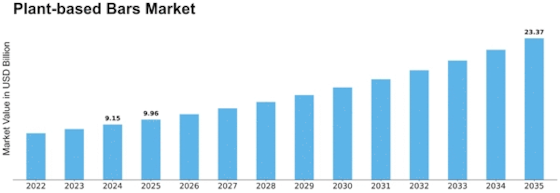


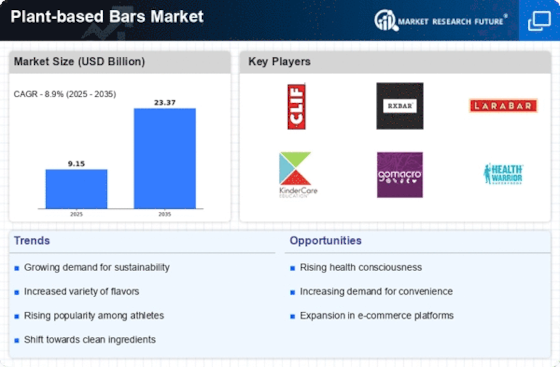
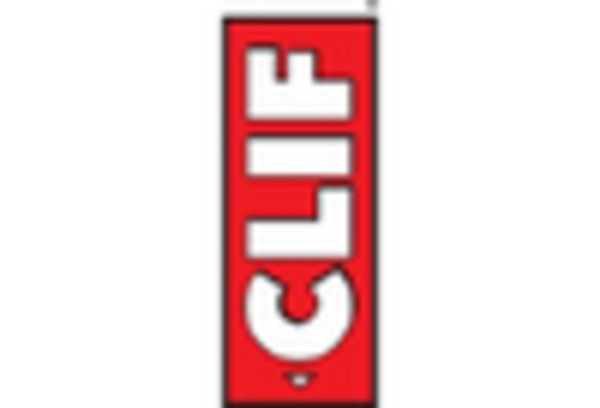
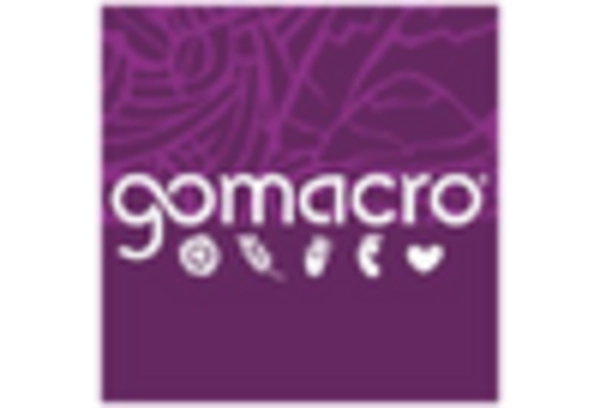
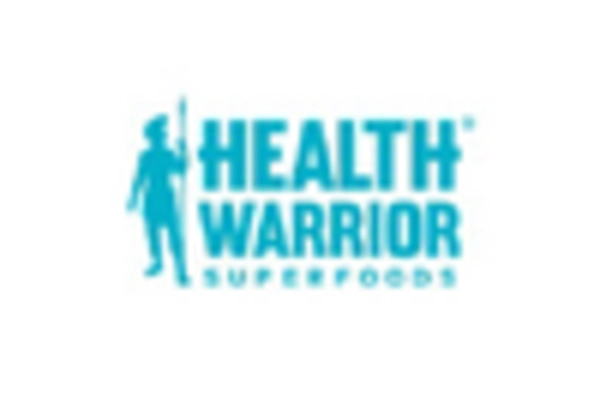

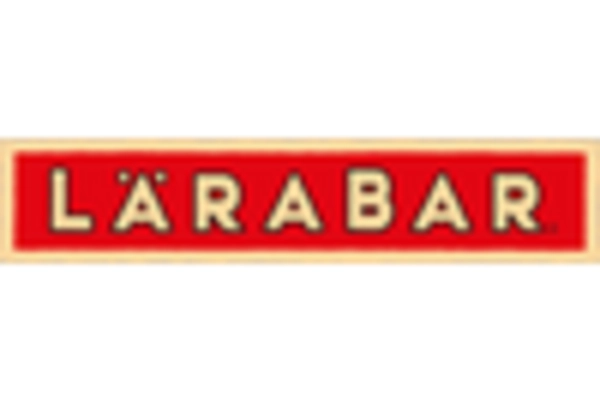
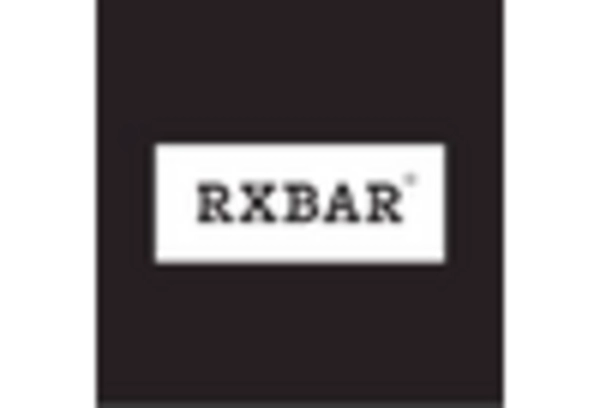









Leave a Comment